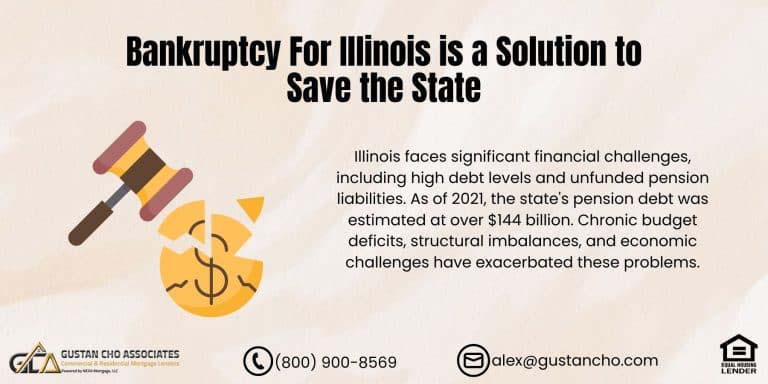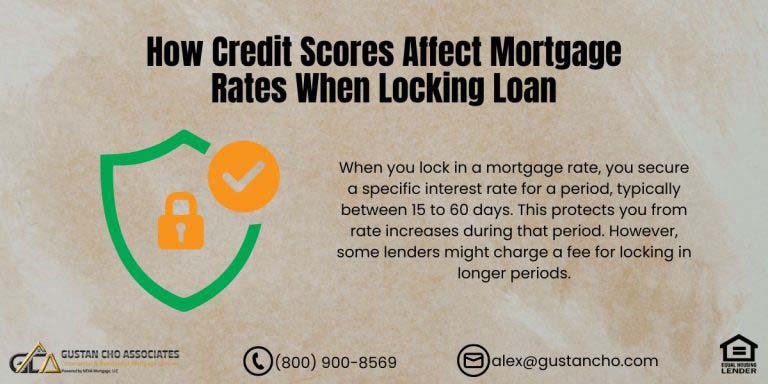How does strong dollar pushes mortgage rates lower? The surge in the U.S. dollar’s value is making waves across global financial market and it’s bringing an advantage for homebuyers which is falling mortgage rates. Dale Elenteny, a senior mortgage loan originator at Gustan Cho Associates says the following about how the strong dollar pushes mortgage rates lower:
As the dollar gains strength against other major currencies, mortgage rates are starting to dip, providing a welcome opportunity for both buyers and homeowners looking to refinance.
In this blog, we’ll discuss in detail the impact how the strong dollar pushes mortgage rates lower and the economic factors driving this trend. We will also learn what it could mean for you if you’re planning to purchase a home or refinance your current loan.
Understanding the Relationship: Strong Dollar vs. Mortgage Rates
At first, it may seem that the U.S. dollar and mortgage rates have little in common. But actually, the connection is based on bond markets, global investment behavior and most especially the 10-year Treasury yield. This is a key metric that sways 30-year fixed mortgage rates. In the next paragraphs we will discuss more about strong dollar pushes mortgage rates lower.
Take First Step Toward Making Your Dream A Reality
Apply Now And Get recommendations From Loan Experts
How Strong Dollar Pushes Mortgage Rates Lower Works?
We all know strong dollar pushes mortgage rates lower. When the dollar strengthens, it often signals confidence in the U.S. economy or global uncertainty, pushing investors toward safe-haven assets like U.S. Treasuries. Increased demand for Treasuries drives yields lower. Since mortgage rates closely follow the 10-year Treasury yield, this demand puts downward pressure on mortgage rates.
News of Strong Dollar Pushes Mortgage Rates Lower
In the last few weeks, mortgage lenders have responded to the falling yields by offering lower mortgage rates. According to national survey data, as of March 2025, average rates for 30-year fixed mortgages have dropped from the mid-7% range to closer to 6.5%. Some lenders are even offering below 6.25% for well-qualified borrowers. This decline, though moderate may mean hundreds of dollars in monthly savings for new buyers or homeowners looking to refinance.
Adjustments on Rates When Strong Dollar Pushes Mortgage Rates Lower
The changes in mortgage rates have been noticeable in 2025, with the average 30-year fixed rate settling around 6.67% and a drop from the peaks above 7% recorded in late 2024. Though this dip might appear encouraging for borrowers, financial experts warn it could signal deeper economic issues, such as an increased risk of recession.
Mortgage Rate Forecasts for the Rest of 2025
- Fannie Mae predicts that the 30-year fixed mortgage rate will average 6.6% in 2025, with a slight decline to 6.4% in 2026 (MidFlorida).
- Freddie Mac expects a little decline in mortgage rates throughout the year, leading to a modest increase in home sales.
- Experts at the National Association of Realtors think mortgage rates might stabilize around 6%, potentially boosting home sales by 7% to 12%.
What’s Fueling the Dollar’s Strength in 2025?
Several economic and geopolitical factors are contributing to the strong dollar pushes mortgage rates lower. The first one is global economic uncertainty. Investors are gathering to the dollar surrounded by concerns over slower global growth and ongoing conflict in certain regions.
Federal Reserve interest rate policy. Even if Fed signals possible rate reduction later, U.S. interest rates remain high compared to those in Europe and Asia. This makes U.S. investments more attractive.
Lastly, U.S. labor market resilience. Continued job growth and substantial GDP numbers are helping the dollar maintain its dominance. Because of this, the dollar index which measures the U.S. dollar against foreign currencies has reached multi-month highs, reinforcing investor sentiment that the U.S. remains a safe harbor for capital.
How a Lower Mortgage Rate Impacts Affordability?
A small reduction in interest rates can definitely increase affordability. For example, a $400,000 loan at 7.0% has a principal and interest payment of around $2,661/month. Lowering the rate to 6.5% drops that payment to about $2,528/month. You will save $133 or nearly $1,600 per year. For buyers dealing with high home prices, every bit counts. These changes might be the push some hesitant buyers need to jump back into the housing market.
What to Do When Strong Dollar Pushes Mortgage Rates Lower?
Below are some tips if you’re thinking about buying or refinancing your home.
- Get pre-approved as early as now
With rates fluctuating, locking in a low rate can give you a strategic advantage. A mortgage preapproval shows sellers you’re serious—and protects you if rates rise again. - Monitor currency and bond markets
The strong dollar story isn’t guaranteed to last. If inflation ticks up or geopolitical tensions ease, the dollar could weaken, sending mortgage rates back up. - Refinance while rates dip
Homeowners who purchased or refinanced in 2023 or 2024 with rates over 7% may want to explore refinancing to lower monthly payments or consolidate debt. - Watch for Fed signals
The Federal Reserve’s next moves on interest rates will influence investor behavior and the bond market. If the Fed begins cutting rates later in 2025, mortgage rates could fall even further.
What Disrupts the Trend When the Strong Dollar Pushes Mortgage Rates Lower
Even if the current conditions favor lower mortgage rates, there are several risks that could shift the direction. If inflation remains high, the Fed may delay rate cuts, pushing Treasury yields and mortgage rates back up. A more substantial recovery overseas could weaken the dollar and reduce global demand for U.S. debt. Increased U.S. borrowing could drive higher bond yields that can override a strong dollar’s effects.
Factors Affecting Mortgage Rates
Many mortgage loan borrowers wonder what determines mortgage rates. Any bad economic news on a strong dollar pushes mortgage rates lower. The sole factor that affects mortgage rates is your credit scores. To be considered a prime borrower, you need a credit score of 740 FICO or higher. Every 20 FICO point decrease in your credit scores, you will get a price adjustment hit. Minimum credit scores to qualify for a conventional mortgage loan is 620 FICO. Conventional loan borrowers with a 620 FICO credit score will be hit with the highest mortgage rates.
Prior bankruptcy, foreclosure, deed in lieu of foreclosure, short sale, collection accounts, charge offs, or prior bad credit on your credit report has no bearing on your mortgage rates.
Two other factors that affect your mortgage rates are the type of property and the loan to value. The reason property types affect mortgage rates is that due to risk. A condominium or multi-unit property is considered a riskier investment to the mortgage lender than a single-family home. Primary owner occupant homes have the best lowest mortgage rates followed by second home financing and investment home financing. Again, mortgage lenders consider that a mortgage loan borrower is less likely to default on their primary homes than they would on a second home or investment property.
Clarify Your Doubts With Our Loan Officers And Finalize Your Mortgage Loans
Apply Now And Get recommendations From Loan Experts
Does Strong Dollar Pushes Mortgage Rates Lower a Window of Opportunity?
The news of a strong U.S. dollar may be accurately what homebuyers and homeowners needed to hear in 2025. With mortgage rates easing slightly, it presents an opportunity for buyers to act before the next wave of economic shifts. Whether you’re a first-time buyer, upgrading to a larger home, or looking to refinance, the current market may offer a short-term sweet spot. It is still best to consult a mortgage professional to assess your own financial situation and make sure you’re making the most of today’s evolving market conditions.
Frequently Asked Questions (FAQs): Strong Dollar Pushes Mortgage Rates Lower
Q: How does a strong dollar pushes mortgage rates lower?
A strong dollar often leads to lower mortgage rates because it boosts investor confidence in U.S. bonds, which pushes down yields tied to mortgage rates.
Q: Why do mortgage rates follow bond yields?
A: Mortgage rates are closely related to the 10-year U.S. Treasury yield. When bond yields fall due to high demand (often from a strong dollar), mortgage rates typically drop too.
Q: Does strong dollar pushes mortgage rates lower always good?
A: Not always, but generally, when the dollar is strong and global investors buy more U.S. assets, it can help lower borrowing costs, including mortgage rates.
Q: What causes the U.S. dollar to get stronger?
A: The dollar strengthens when the U.S. economy looks more stable than others, interest rates are higher than in other countries, or global uncertainty drives investors to U.S. assets.
Q: Will mortgage rates keep falling if the dollar stays strong?
A: Possibly, but many other factors—like inflation, Fed policy, and economic growth—also influence mortgage rates.
Q: How can homebuyers benefit from strong dollar pushes mortgage rates lower?
A: Lower rates mean lower monthly payments or the ability to afford more home. It can also be a good time to refinance if you have a higher interest rate.
Q: Is now a good time to lock in a mortgage rate?
A: If rates have dropped and fit your budget, locking in now can help protect you from future increases. Always consult a lender for personalized advice.
If you have further questions about strong dollar pushes mortgage rates lower or interested in starting your mortgage journey, you can contact us here at Gustan Cho Associates.
Let Us Help You Turn Your Plans Into Reality
Apply Now And Get recommendations From Loan Experts










